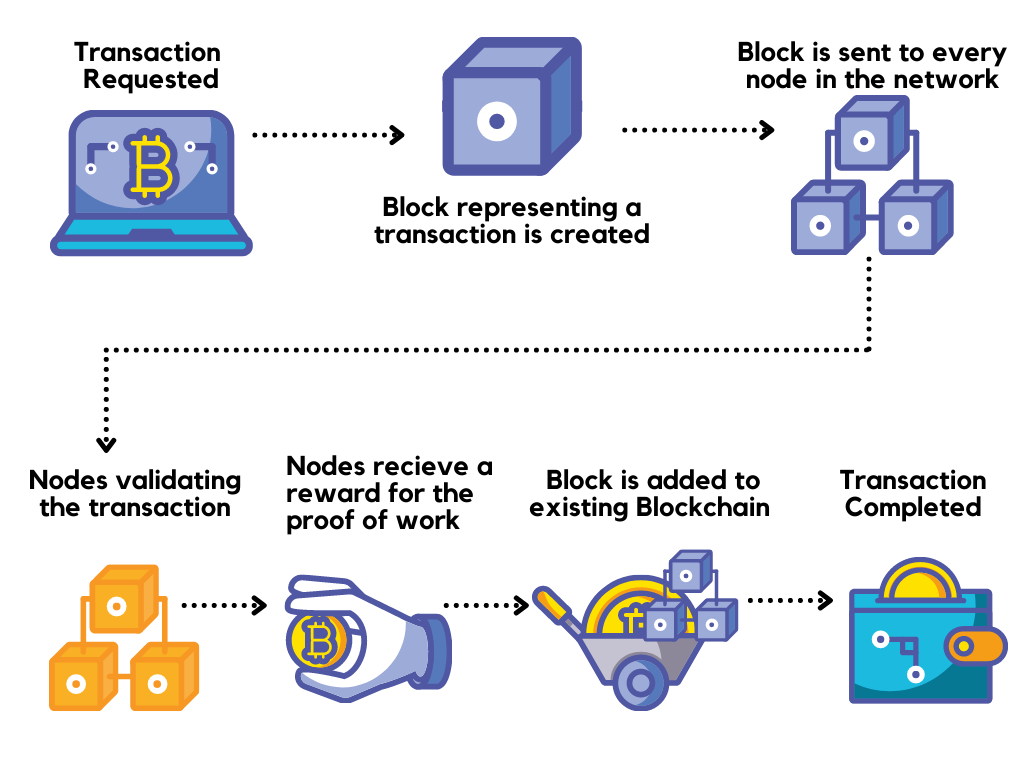Rise by Six: Your Daily Dose of Inspiration
Explore insights and stories that elevate your day.
Blockchain: Beyond the Hype
Uncover the real impact of blockchain technology beyond the hype. Discover insights, trends, and future possibilities today!
Understanding the Real-World Applications of Blockchain Technology
Blockchain technology has transcended its initial association with cryptocurrencies and is now making significant inroads into various sectors. One of the most compelling real-world applications is in the field of financial services. Traditional banking systems are often plagued by inefficiencies and high transaction costs, and blockchain offers a solution through its decentralized and transparent nature. For instance, global remittances can be processed faster and at a fraction of the cost compared to conventional methods, as it eliminates the need for intermediaries. Companies like Ripple are already leveraging this blockchain technology to enable near-instant cross-border transactions, revolutionizing how we think about money transfer.
Beyond finance, blockchain technology is proving invaluable in supply chain management. By enabling greater transparency and traceability, businesses can monitor the flow of goods from production to delivery. This is particularly crucial in industries such as food and pharmaceuticals, where the origin and safety of products are paramount. For example, companies like IBM are utilizing blockchain to create a secure and immutable record of product journeys, allowing consumers to verify the authenticity and safety of the items they purchase. As more sectors adopt this technology, the potential for increased efficiency and accountability continues to expand.

Is Blockchain the Future of Data Security?
Blockchain technology has been heralded as a transformative force in many industries, particularly in the realm of data security. At its core, blockchain operates on a decentralized ledger system that records transactions across numerous computers, ensuring that data cannot be altered retroactively without the consensus of the network. This immutability is a key factor contributing to enhanced security, as it makes it exceedingly difficult for malicious actors to manipulate data or engage in fraud. Furthermore, blockchain employs advanced cryptographic techniques that safeguard sensitive information, providing users with a higher level of confidence and transparency in their transactions.
As organizations increasingly grapple with the challenges of cyber threats and data breaches, embracing blockchain could be a game-changer. Not only does it promise greater data integrity, but it also enables efficient data sharing across partners while maintaining stringent security protocols. For businesses looking to fortify their cybersecurity measures, three core benefits of blockchain include:
- Decentralization: Reducing a single point of failure.
- Transparency: Enabling traceable transactions.
- Enhanced Security: Utilizing encryption to protect data.
Debunking Common Myths About Blockchain and Cryptocurrencies
Blockchain and cryptocurrencies have generated significant interest and discussion, but this has also led to the proliferation of myths that can misguide potential investors and users. One common myth is that blockchain technology is synonymous with cryptocurrencies. While it’s true that blockchain underpins most cryptocurrencies, it is also a standalone technology that can be applied in various industries, including supply chain management, healthcare, and even voting systems. This versatility demonstrates that blockchain's potential goes far beyond just enabling digital currencies.
Another misconception is that investing in cryptocurrencies guarantees quick wealth. Many people believe that they can become millionaires overnight due to the remarkable price surges we often hear about in the news. However, the reality is that the cryptocurrency market is highly volatile and unpredictable, making it possible to incur significant losses as well. A prudent approach involves thorough research and a long-term investment strategy, rather than succumbing to the hype of instant riches.